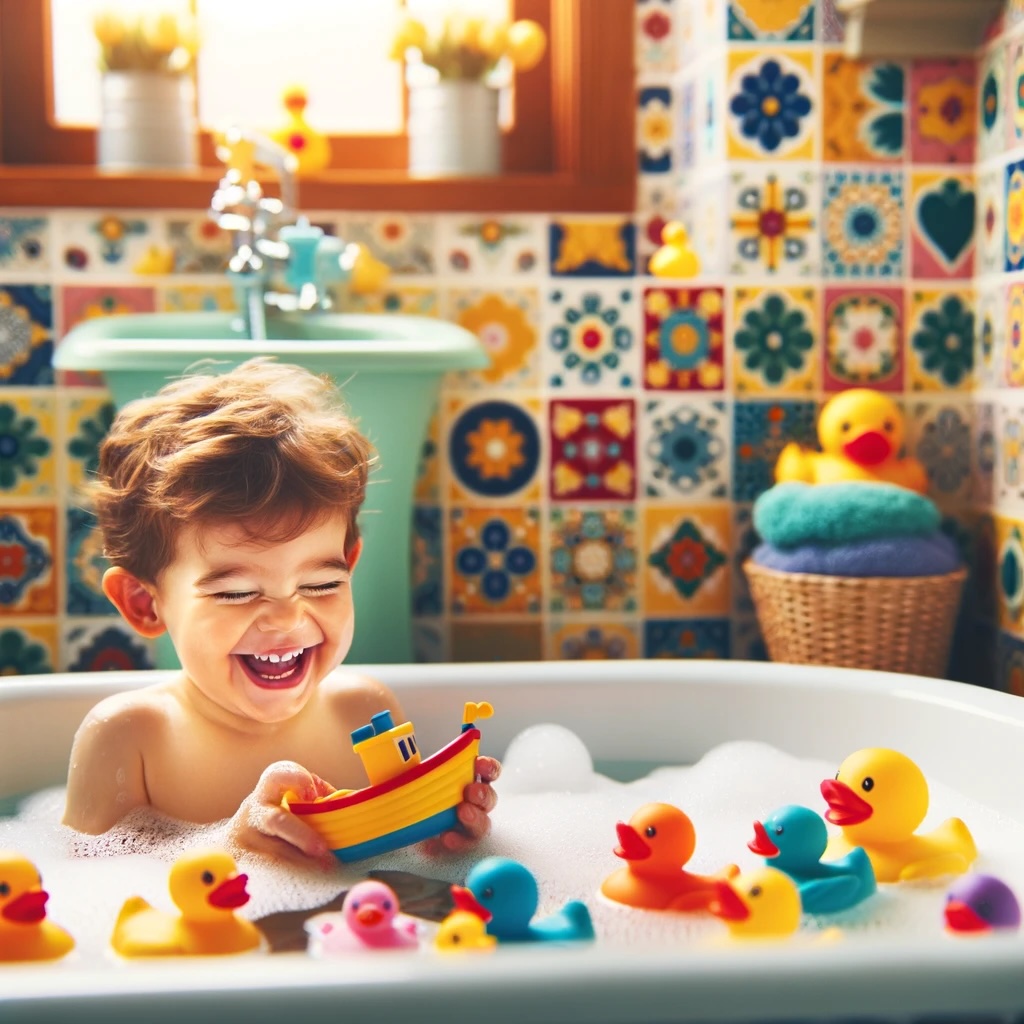As winter wraps its chilly embrace around us, parents are often caught in a conundrum about their child’s bathing routine. The cold weather brings with it the question: Does your child really need a daily bath during the winter months? This debate has divided opinions among caregivers, with some swearing by the necessity of daily cleanliness, while others argue that it might do more harm than good. This blog post delves into the intricacies of children’s skincare during winter, offering insights and advice from pediatricians and dermatologists to help you make the best decision for your little one.
Understanding Your Child’s Skin
Children’s skin is more delicate and sensitive compared to adults. This sensitivity makes their skin more susceptible to environmental changes, particularly during the cold season. Winter air is drier, which can strip moisture from the skin, leading to dryness, irritation, and in some cases, eczema. It’s essential to understand that the goal of bathing isn’t just cleanliness but also maintaining the skin’s natural moisture and health. Therefore, the approach to bathing in winter should be different, prioritizing skin protection over adherence to a strict daily routine.
The Debate Around Daily Baths
The debate on whether children need a daily bath in winter is nuanced. Proponents of daily bathing argue that it’s essential for maintaining hygiene, especially for active children or those in daycare who are exposed to germs. They believe that with proper moisturizing, the adverse effects of bathing on skin moisture can be mitigated. Opponents, however, highlight that daily bathing can exacerbate skin dryness and irritation, leading to discomfort and potential skin problems. They advocate for less frequent bathing schedules, emphasizing that a child’s skin naturally produces oils that protect against dryness and should not be removed too frequently.
Pediatricians and dermatologists often find a middle ground, suggesting that the need for daily baths varies depending on the child’s age, activity level, and skin condition. For instance, newborns and infants typically don’t require daily baths, while older children who engage in physical activities might benefit from more frequent bathing to prevent hygiene-related issues.
Alternatives to Daily Bathing
Given the potential for skin dryness and irritation, many experts recommend alternative methods to keep children clean during winter without resorting to daily baths. Spot cleaning involves washing only the dirty or sweaty parts of the body, such as the hands, face, and genital area, which can effectively maintain hygiene without the need for a full bath. Sponge baths with lukewarm water and mild, moisturizing cleansers can also be a gentle way to clean a child without exposing their entire body to water. This method is especially useful for younger children and infants.
Selecting the right products is crucial for winter skin care. Opt for mild, fragrance-free soaps and shampoos that are specifically formulated for sensitive skin. These products help cleanse gently without stripping away natural oils. Additionally, immediate application of a hypoallergenic moisturizer after bathing can lock in moisture, protecting the skin from dryness.
Maintaining Skin Health in Winter
The key to healthy skin in winter is not just how often you bathe your child, but also how you care for their skin before, during, and after baths. Moisturizing is paramount; applying a thick, emollient cream or ointment right after a bath can seal in moisture and protect the skin barrier. Look for products with natural ingredients like shea butter, coconut oil, or ceramides that are known for their hydrating properties.
Bath time tips: Keep baths short, and use lukewarm water instead of hot to prevent further drying out the skin. Avoid long soaks and ensure that your child is gently patted dry rather than rubbed with a towel, as this can irritate sensitive skin.
Humidifiers can be a game-changer in maintaining skin health during the dry winter months. Running a humidifier in your child’s bedroom at night adds moisture back into the air, helping to keep their skin hydrated and reducing the likelihood of dryness and irritation.
Parental Considerations and Flexibility
Every child is unique, and what works for one may not work for another. Observing your child’s skin and reacting to its needs is crucial. Some children might tolerate and even require daily baths without any adverse effects, especially if they’re particularly active or have a condition that benefits from regular bathing. In contrast, others may thrive with less frequent bathing schedules.
Flexibility and adaptation are key. If you notice signs of skin irritation or dryness, it might be time to adjust your approach. This could mean reducing the frequency of baths, switching to milder skincare products, or incorporating more intensive moisturizing treatments. Ultimately, the best approach is the one that keeps your child comfortable, happy, and healthy.
Conclusion
Deciding whether your child needs a daily bath in winter involves balancing hygiene needs with skin health considerations. While daily baths might be beneficial for some children, others may thrive with less frequent washing, supplemented by alternative cleaning methods and rigorous moisturizing routines. Listening to your child’s skin and consulting with healthcare professionals can guide you to the best practices for your family. Remember, the goal is to keep your child clean and healthy while ensuring their skin remains protected and hydrated through the colder months. Embrace flexibility in your routine and let your child’s comfort and well-being lead your decisions.